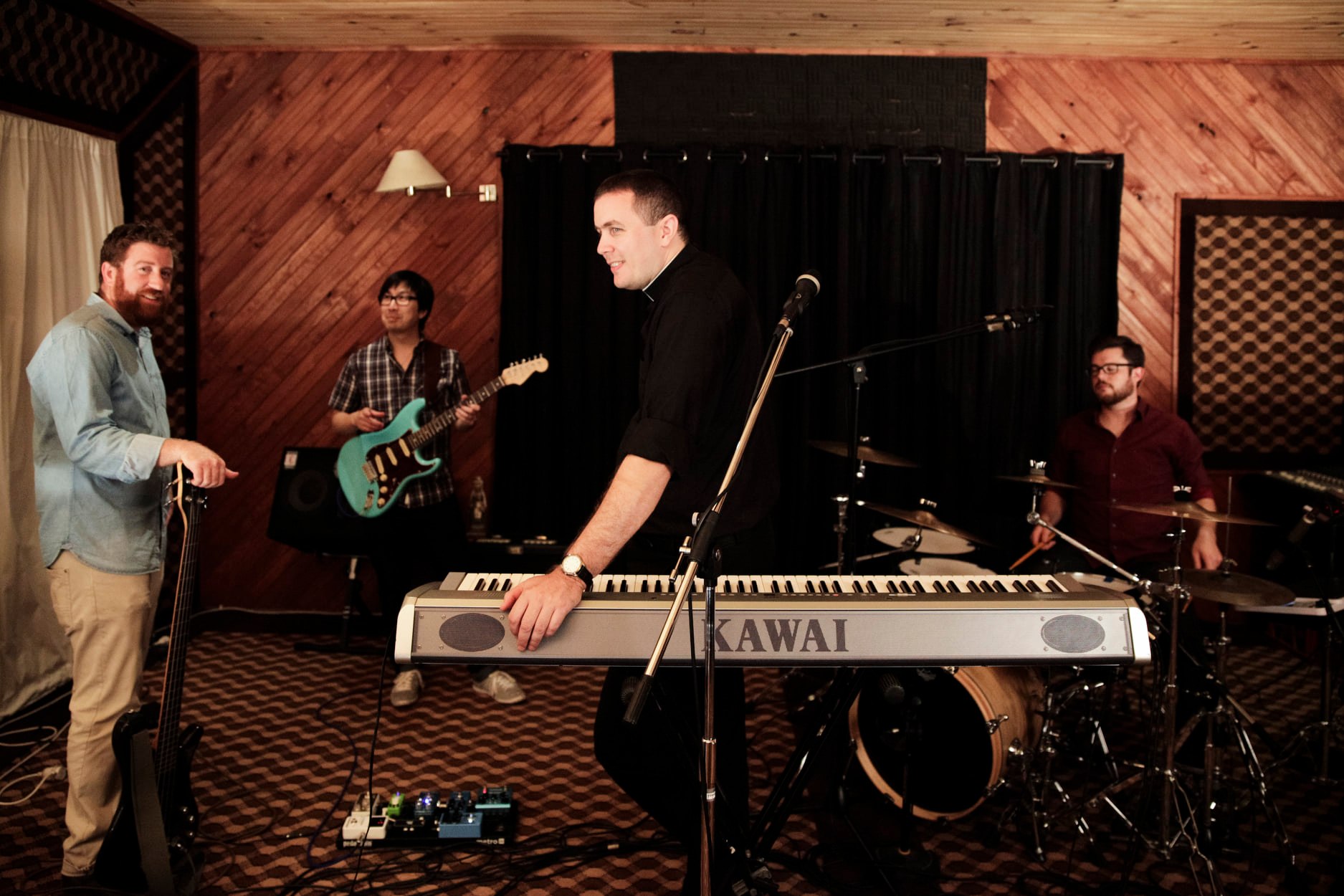Music surrounds many of us in modern times. Whether it’s the radio in the car, at the supermarket, booming from a worksite down the road, or coming from our headphones as we work, travel or even eat, our culture seems to encourage us to constantly be listening to the latest tunes.
While there are obvious downsides to the prevalence of music, it also provides an opportunity for listeners to encounter God, to contemplate deeper realities and to ask searching questions about the meaning of life.
Melbourne-based musician Alyssa Agius, 31, who also works part-time with Fr Rob Galea at FRG Ministry, says among the plethora of music available today, there are songs that can bring individuals closer to God, especially those who might otherwise have no opportunities to encounter faith.
“There’s still great gems,” she says. “There are some amazing songs about true love, songs about following our dreams and living virtuous lives. I don’t think songs need to explicitly mention God or faith to have those positive messages that you can apply to living out your faith.”
 Perth priest Fr Mark Baumgarten was a musician before entering the seminary. He recently released his first album, which he describes as a “musical autobiography”.
Perth priest Fr Mark Baumgarten was a musician before entering the seminary. He recently released his first album, which he describes as a “musical autobiography”.
His music is neither praise and worship nor liturgical music, but rather secular-sounding songs with deeper themes.
Inspired by the music of Billy Joel growing up, Fr Mark says the messages in music can be profound.
“A good line I heard recently from a music teacher was that ‘Words make you think thoughts, music makes you feel feelings, songs make you feel thoughts’, because they’re both music and lyrics,” he says.
“Good music, even instrumental music, really has a way of stirring the emotions. The power that songs can have is that, if they have well-crafted lyrics that can touch on some significant themes, and if it’s a good combination of the lyrics and music, it can open up an emotional relationship to these themes, not just a head relationship.
“Because of that combination of both music which touches the emotions and lyrics which open up avenues for deeper thought, songs have a power that, if done well, can be quite useful and can be helpful for evangelisation, as long as it’s not done in a cheap kind of way but actually has some depth to it.”
However, both Fr Mark and Alyssa are astutely aware of the many negative messages present in popular music, saying that people of faith need to carefully discern the most suitable music to listen to on a song-by-song basis.
“If the lyrics are promoting immorality or violence, or topics like not guarding our purity, or if songs are causing you to think about or even commit sin, if it’s something that’s going to tempt you to do something that doesn’t glorify God, well that’s when I would say it’s off-limits,” Alyssa says.
“If a song is glorifying what opposes God and our beliefs, I also wouldn’t listen to that either. It’s really important to just discern the messages of the songs and make sure that they do line up with what we believe in.
“I might ask ‘Does this song take me closer to God or further away from God?’ when I’m thinking about what would be suitable to listen to.”
Fr Mark believes that the key to discerning the most appropriate music to listen to – indeed for discerning any form of media to consume – is a solid faith formation.
“I think it’s important to acknowledge that we are all influenced by the broader culture in ways we don’t always recognise, and that this is not always a positive thing,” he says.
“Some songs – certainly their lyrics, but even their instrumentation – can tap into the baser aspects of our humanity. With a solid grounding in the faith and some decent self-awareness we have a better chance of noticing this and not exposing ourselves to too much of it.”
Music also presents challenges for parents when it comes to being aware of what their children are hearing, sometimes by no choice of their own (such as when visiting a shopping centre).
“I think parents need to be really conscious of age-appropriate messages that are in songs,” Alyssa says.
“It really does affect our subconscious and sometimes we don’t really know what the songs are saying but if you keep listening to that long enough it will eventually affect our words and our actions.
“My advice would just be don’t listen blindly to music, really scan those lyrics and discern what’s going to be best for you, your family and your relationship with God.”
 A self-confessed “pop girl”, Alyssa says she finds some Christian music to be a refreshing alternative, while retaining some of the musical elements she enjoys.
A self-confessed “pop girl”, Alyssa says she finds some Christian music to be a refreshing alternative, while retaining some of the musical elements she enjoys.
“I love those Christian pop artists that sound like you’re listening to Dua Lipa or someone similar, but it’s a song about our faith or about God, or something a lot more morally acceptable,” she says.
Specifically, Alyssa highly recommends several Christian artists including For King and Country, Lauren Daigle, Josh Wilson, Chris August and Anne Wilson.
Fr Mark’s music, while perhaps not fitting into the “worship” or even “inspirational” genres, also seeks to be uplifting, hopeful and encouraging while also being enjoyable to listen to. He even uses one of his songs, The Promised Land, as an informal, relaxed way of introducing couple to marriage preparation.
“I’ve always found that powerful or significant lyrics really elevates a song for me, and so when I’m composing lyrics… I try to touch on themes that maybe might come to me in prayer or just in my own wrestling with life,” he explains.
“It’s not explicit evangelisation, but it might be more subtle, sneaking it in the back door without people realising that themes of faith or bigger questions of life have gotten into their head.”
Links
Fr Mark Baumgarten’s music can be found at: www.pianopriest.com
FRG Ministry: https://www.frgministry.com/
Images: Fr Mark Baumgarten and his band (Peter Bui); Alyssa Agius (supplied)
Words: Matthew Biddle



